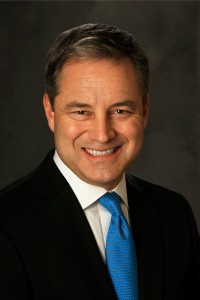You know your life has taken a strange turn when you find yourself searching for a statesman among our federal delegation only to increasingly find yourself looking U.S. Rep. Don Young in the eye.
You also know your life has taken a strange turn when you, a consistent critic of federal investigative powers and the judicial branch, finds herself defending the government’s attempt to protect its citizens.
I’m referring to the National Security Agency’s phone surveillance program, which has caused near mass hysteria across the country, hysteria that both of Alaska’s U.S. senators have done nothing to quell and in fact appear to be exacerbating for political gain.
By now, most have heard of the recently exposed program dubbed PRISM in which the government is collecting huge amounts of data from phone records in an attempt to find patterns in order to thwart terrorism attacks. It appears that PRISM was voted on in the 2008 reauthorization of the Patriot Act, which Sen. Lisa Murkowski voted for.
The situation is constantly evolving, but this is what we know now: the government program pertains only to the date, length, and phone numbers involved in each call. Sen. Mark Begich told millions of Americans on Fox News that the program allows the government to tap the phones of millions of Americans.
That’s not true. The program does not give the government carte blanche to listen into our calls.
Let me repeat this because our senators aren’t doing so: The program does not allow the government to listen into the phone calls or even gather information about the phone number or who it belongs to. If the government then finds a troublesome pattern in the phone calls and wants to find out what is being said, it then requests a warrant from the FISA court, a court established in 1978 to authorize government wiretaps in foreign intelligence investigations.
As others have pointed out, there are plenty of reasons to be distrustful of governmental overreach. Not long ago, Alaskans got a front-row seat to what happens when the government wants you and will stop at nothing to get you. And the late Sen. Ted Stevens was just one high profile example of that overreach which many more are victim to. Our prisons are full of low level drug dealers who are spending decades behind bars because some overzealous prosecutor wants a win on his record. Idealistic environmentalists are being charged as terrorists and spending much of their lives in prison under terrorism laws for nothing more than property damage. And our executive branch is ordering the firing of missiles at U.S. citizens and killing them without any legal proceedings.
In comparison, from what we know about the program, PRISM seems downright benign.
According to Michael Hayden, the former head of NSA under President George Bush, this is how the program works:
“So, you roll up something in Waziristan. You get a cell phone. It’s the first time you’ve ever had that cell phone number. You know it’s related to terrorism because of the pocket litter you’ve gotten in that operation…you simply ask that database, hey, any of you phone numbers in there ever talked to this phone number in Waziristan?”
In other words, someone from a terrorism network in Waziristan is calling, say, me. And the NSA wants to know if I’ve been calling any other numbers that might be connected to that terrorism network. This database of information allows it to do that. It could, perhaps go to the FISA court with a warrant to listen to future calls, but it wouldn’t have had the ability to look retroactively at calls that I might have made.
Google is able to discern that last week I was coveting lululemon’s yoga pants. Yahoo knows that two days ago (heaven help me) I clicked on a story about Bristol Palin’s imminent appearance on a reality show. But the government shouldn’t know that last week I got a call from a terrorism network in Waziristan and then the month before, called someone who was connected to the same network in Waziristan who is visiting his cousin in California?
In fact, I would be appalled if I found out that the government had the ability to track such calls and didn’t do so to thwart a terrorism attack. And so would much of the rest of the country if that Waziristan cousin lobbed a bomb in California with my assistance.
Murkowski has sent out press releases criticizing the program. “Alaskans believe the government has no business snooping around our property, our library books, our phone calls or e-mails — and that our privacy rights are guaranteed by the Constitution,” she wrote. “Our investment in protecting American lives and liberties simultaneously is not a blank check.”
She goes on to defend her rather mixed record in protecting privacy.
Though it’s true that she has voted for and against various amendments and against various Patriot Act reauthorization bills, it’s also true that she voted for the original Patriot Act and also the bill in 2008 that allowed this program.
Begich’s hands are cleaner on this. He has consistently voted against the Patriot Act, has spoken loudly about privacy and is cosponsor of what seems to be a much needed bill that would make the FISA courts more transparent. However, he, like Murkowski, is doing little to educate the public on the program and what it does and doesn’t do. Instead, both seem intent on fomenting fear for political gain.
“Alaskans have a right to know why information about their personal communications is being monitored,” Begich said.
If there’s one thing that’s clear and that’s been stated repeatedly it is that the information is being used to stop people from harming us. Begich knows this. So does Murkowski. And they both know how the program works.
Back to Young the statesman. He, like Begich, has been consistent in his opposition to the Patriot Act. However, he has so far declined to make that an issue, nor to join with the rest of the crew in spreading fear.
Though not his usual modus operandi, as of this writing Young has stayed silent on the matter. His spokesperson said that he’s waiting to gather more information before he speaks on it.
Young’s waiting to gather information so he actually knows what he’s talking about and perhaps will be able to do what he was elected to do: tell the public the truth, instead of beating the drums of demagoguery
Contact Amandamcoyne@yahoo.com











